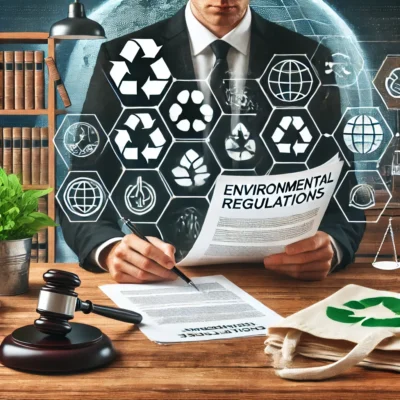Does sustainability matter in the promo industry? What does the sustainability journey look like? How can I use sustainability to differentiate my promo product offering?
In collaboration with Sustainable Promo Pro, Brianna LePiane, we’ll be unpacking these questions (and more) as we dive into one of the hottest trends in the promo industry: Sustainability.
This is the second post in our sustainable promo series (see the first post here).
Does sustainability matter in the promo industry?
Promo companies are no strangers to change. Over the course of its multi-century history, the promotional products industry has needed to adapt to the changing times. It has always met the moment, and this moment is no different. Sustainability has become an imperative in the promo industry, driven by one thing: market demand.
Let’s break down this market demand into two main categories:
- Customer Demand
- Regulatory Pressure
Customer Demand
Consumers today are more conscious than ever about the environmental impact of their purchases. Both individual buyers and corporate clients are actively seeking sustainable alternatives, prioritizing products made from recycled, biodegradable, or ethically sourced materials. Brands that can demonstrate a commitment to sustainability gain a competitive edge, attracting customers who are willing to pay a premium for eco-friendly products. Most disrupters in the Promo space are focusing on verifiably sustainable products as one of their core differentiators (Ex: Fairware, Rupt, Ethical Swag). Furthermore, major corporations have established sustainability goals that extend to their supply chains, including the promotional products they purchase. Large corporate buyers like Microsoft, Mastercard, Amazon, Walmart, Disney, major airlines, and many others have implemented mandates for companies within their value chain to disclosure various sustainability metrics. Winning big contracts in the promo industry now often requires sellers to provide assurance that their products are verified as sustainable.
Regulatory Pressure

Additionally, Governments worldwide are tightening regulations on single-use plastics, waste reduction, and carbon emissions. Many jurisdictions have already implemented bans on certain materials, and more policies are on the horizon. Promo companies that proactively shift to sustainable products and practices will stay ahead of compliance requirements, avoiding potential fines and disruptions. Moreover, companies that can demonstrate strong environmental credentials may gain preferred supplier status in industries where sustainability is mandated. Here are some key regulations driving action in promo today:
- State-Level Climate Reporting Mandates. States like California, New York, and Washington are implementing climate disclosure laws that require businesses to report their greenhouse gas (GHG) emissions and sustainability efforts. California’s SB 253 and SB 261, for example, mandate large companies to disclose their carbon footprints and climate-related financial risks. While these regulations primarily target large corporations, they extend down the supply chain, meaning promo companies that work with big brands may need to track and report their emissions to stay competitive. This is pushing the industry toward more transparent and measurable sustainability practices.
- State-Level Extended Producer Responsibility (EPR) Laws. States like Maine, Oregon, Colorado, and California have enacted EPR laws that require companies to take responsibility for the end-of-life disposal of their products. This affects how promo companies handle product packaging and waste management.
- California’s Single-Use Plastics Ban (SB 54 – Plastic Pollution Prevention and Packaging Producer Responsibility Act). This requires companies to reduce plastic packaging by 25% by 2032 and ensure all plastic packaging is recyclable or compostable. Therefore, Promo companies that sell plastic-based giveaways (e.g., plastic straws, utensils, and packaging materials) need to comply with these restrictions.
- Canada’s Anti-Greenwashing Regulation – Competition Act Amendments. In Canada, recent amendments to the Competition Act target greenwashing by requiring businesses to provide credible, verifiable evidence for environmental claims. This applies to promotional product companies selling in Canada or marketing sustainability claims on their products. Misleading claims such as “100% eco-friendly” or “carbon neutral” without proof can lead to fines and legal action. Thus, Promo companies operating in both the U.S. and Canada must ensure their marketing aligns with these stricter transparency requirements.
- Federal Trade Commission (FTC) Green Guides. These guidelines regulate environmental marketing claims to prevent greenwashing. Promo companies must ensure that claims like “biodegradable,” “compostable,” or “recyclable” are substantiated and not misleading. This affects how sustainability is marketed on promo products.
What does the sustainability journey look like in promo today and how can it create value for buyers?
Corporate Sustainability has 3 approaches for organizations of every size. Best case scenario? All three approaches are active with continuous evaluation and engagement. Keep in mind, it’s about starting small and a willingness to make a few mistakes & evolve. That’s what the journey is all about!
- Values-Based: Organizations may choose a values-based approach, meaning they are relying on messaging, culture, or product design to drive sustainable change. This approach isn’t necessarily better or worse than a certification-based approach. However, it depends on what they do, what they sell, and their size (i.e, their impact). As an example, suppliers of paper may not have the expected FSC certification for their paper products because they have opted for tree-less paper alternatives such as recycled cotton or barley, which require less water in their production. A distributor can match this cotton-paper value to fashion brands seeking to reduce their environmental impact matching their values with the products they are purchasing as promotional items.
- Partnership: The partnership approach can be a cost-effective way to get started or for smaller organizations. This approach means relying on suppliers to provide certifications rather than working on certifications for themselves or their products. Distributors can pass through compliance or safety resorts to their customers or provide certifications their suppliers have earned for their buyers to evaluate. If suppliers are unable or unwilling to provide reports, suggesting a different product assortment from a supplier with better transparency will support building trust and an ongoing relationship with customers.
- Certifications: Other organizations may choose certifications to provide the added assurances needed to satisfy eco-savvy buyers. Certifications are not all created equal. It’s important to do the research about which certifications are most appropriate, recognized and will support your growth before investing the time and money into the process. Certifying a product, factory, and/or an entire operation can be time-consuming and costly. Ask your top customers which certifications are meaningful to them to help guide your decision-making can help demonstrate value once the process is complete.
Whichever way an organization is developing more sustainable products or operations, professionals in the industry can leverage sustainability positioning by equipping themselves with information to meet the changing landscape we now find ourselves in.

How can I use sustainability to differentiate my promo product offering?
Companies that embrace sustainability gain a competitive edge, attract eco-conscious clients, and future-proof their business against evolving regulations. The good news is that getting started doesn’t have to be overwhelming. By taking small, practical steps, promo companies can begin integrating sustainability into their product offerings and stand out in the market.
Here are three simple actions to get started integrating sustainability into your products:
-
Track Your Environmental Data. You can’t improve what you don’t measure. Start by tracking the materials used in your products in a Bill of Materials. At the same time, you need to track the carbon emissions from your business operations, such as manufacturing, shipping, and packaging waste. Even basic data collection will help you make more informed, sustainable choices over time. CarbonSuite can help with this.
- Think in terms of the three Rs: reduce, reuse, recycle. Are your sourcing products helping your customers reduce single-use items like plastic water bottles? Are the products you are presenting useful and items your customer will reuse over and over in their daily lives? Do the items you are presenting have recycled content or renewable materials in them? Remove the date on imprinted items like t-shirts that are usable or sellable year after year. Swap out traditional plastic and synthetic materials for more sustainable options like recycled fabrics, bamboo, stainless steel, and biodegradable packaging. Many suppliers now offer certified sustainable options that align with customer demand.
-
Be Transparent About Sustainability Claims. Avoid greenwashing by clearly communicating the sustainability features of your products. Use verified certifications (e.g., Forest Stewardship Council, Bluesign, B Corp Certification) and provide details on why a product is eco-friendly. Honest, credible claims build trust and set you apart from competitors making vague or misleading statements.
Spotlight: Eco-Products – what they are and how to create value with them
What does “eco” mean? At a glance, “eco” is short for “ecological”, but how does that apply when we are talking about a power bank or waterproof jacket?
First, it’s important to note that “eco” or “eco products” are not a certifiable term, it’s a descriptor that signifies a level of environmental consideration that has been part of the product’s design. It could mean the item is:
- Made with recycled content
- Has a regenerative component like seeded paper or pencils
- Made with renewable materials like bamboo or bio-based plastic
- The purchase of the item may fund offsets or contribute to social impact
- The product is more reusable, multi-use, or durable compared to the non-eco version
- Other features suppliers are considering as contributing to a reduced impact on the environment.
An “eco product” doesn’t always mean there’s a sustainable end-of-life plan for the product, but the best ones out there do, and we are sure to see more consideration of end-of-life waste in the promotional products space in the future.
You can think of “eco products” as a colourway available to you that can help you grow your sales. Not everyone is going to care about sustainability, and that’s fine! You can consider “eco” as a colourway that is now available to help you grow your business with those customers who have included sustainable efforts in their brand or procurement process.

Wrapping Up
Sustainability in the promo industry is a journey, but it matters. Promo companies that understand sustainability and know how to implement it correctly can meet compliance requirements while offering real differentiation for their products.
Thanks to our VIP contributor Brianna LePiane for her invaluable insights on sustainable promo products in this article. You can learn more about her company, Sustainable Product Sales here.
About CarbonSuite

CarbonSuite is a Built-for-NetSuite carbon accounting software solution that helps your company to record, report, and reduce its environmental impact. CarbonSuite is a certified NetSuite “SuiteApp” that automates carbon accounting and sustainability reporting, all directly within your NetSuite ERP system. As certified experts in both NetSuite and Sustainability Management, CarbonSuite is here to help you streamline and integrate your sustainability process within your existing financial and operational processes in your ERP system.
CarbonSuite is a certified PPAI solution partner, you can view our solution listing on the PPAI Solutions Center. PPAI members that use NetSuite can even get a discount on their licensing with CarbonSuite. CarbonSuite is dedicated to driving sustainability in the promotional products industry. For more information, contact us at info@carbon-suite.com.

